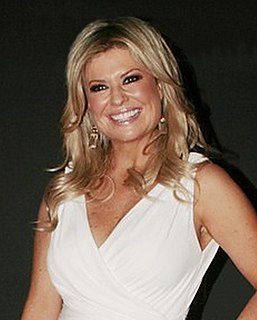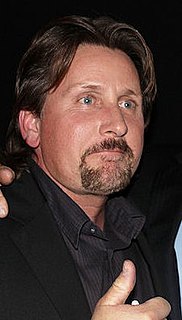A Quote by Owen Pallett
I think the cornerstone for my impetus for doing arrangements for people is because I want to be an enabler. That is to say, I don't approach arrangements with the idea that I want to progressive the genre of arranging. I want to be more of an enabler, and if a person is making a record and they have the option of layering some real instruments down on a track and I can be of assistance whether it is brass or winds or stings or percussion then I do so. Sometimes I do take on projects because it is a pretty sweet deal to work with Pet Shop boys, you know?
Quote Topics
Related Quotes
A big part of making an album is that you want to have enough material - you want to have enough stuff for people to hear and know that it represents you. So it does sometimes turn into a situation where you're saying to the person you're working with, "Well, what do you want?" But then there are other times when I work with people and they'll turn to me and say, "How do you want to do this?" And that's actually when I work best.
We do not want to repeat ourselves [in Doctor Strange] or do what's been done before necessarily, and when you have a track record now you can either do that and keep, this seems to work and let's keep doing this - which some people accuse us of no matter what, because I don't think they pay attention, but really what we do is say, 'Okay, we have a studio that trusts us and let's us do what we want for the most part with the creative.
I'm now much more excited about genre distinctions. What I still see breaking down are more the hierarchical arrangements of genres. That is, "There is literary fiction, and then there are lesser genres." I'm much more clear on the idea that literary fiction is itself a genre. It is not above other genres. It is down there in the muck with all the other genres, and it's doing the wonderful things that it does, but to give it a Y-axis, to make it high and low, just seems absurd. I stand by that.
I usually don't share the music with the musicians until right before they have to record their parts, because I hate discussing it and just intellectualizing it on any level. I just want to speak from the subconscious, which knows way more about me than my intellectual side will ever know. Once I start doing the arrangements - what I call the architecture of the song - that has a lot of thought put into it.
If it's just a pastime, keep doing it because it's relaxing and to blow off some steam. But if you're not sure if you want to do it, or you're thinking you can be famous, you shouldn't do it because you want to be famous. You have to do it because you love it and you want to play for people. And if that's what you want to do, then do it, but you can't go into it with that mindset of "we'll be in a band and we'll be famous."
What's the level of compromise for making that kind of money? How far do I have to sell my soul? What's the price of that? And I don't know if I want to make those kind of compromises any more. I think I'm a different person. I think I've matured to a great extent. I think that I want different things now. That it's not about the celebrity status that you receive because you're doing the next hot movie. It's about doing good work.
It's an important moment as a reader, I think, when you can forget the question of whether you need to know what happened. Some people really want hard explanations. I'm the other way. I like mysteries. I don't want to frustrate people. I don't want people to feel like they got no answers, but I want to approach the mystery and sit with it.
I think online, like on YouTube and stuff, people could pretty much say whatever they want. They have no filter in their brain, because no one knows who they are. They're totally anonymous, so they could say whatever they want. But when they're in person with me, they wouldn't say those things, because I can actually see who they are.








































